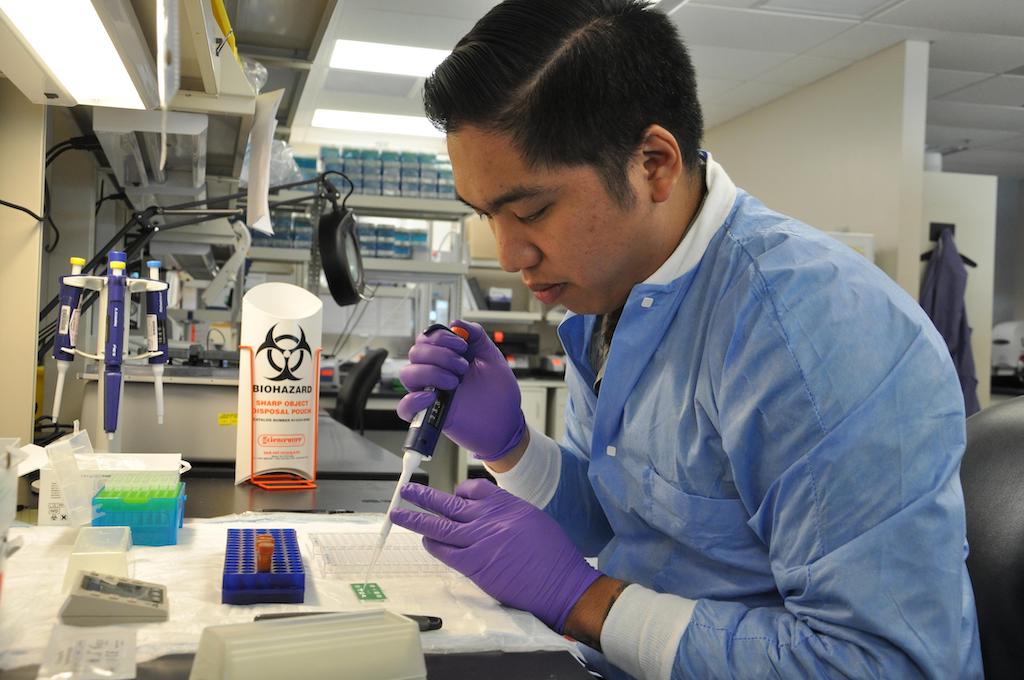Coronavirus doesn’t only affect medical staff who work directly with patients affected by the illness. The knock-on effect to other areas of healthcare has also been profound, as we found out when we spoke to an epidemiologist.

Maria* starts by telling us that her colleagues have been pulled away to deal with the novel coronavirus, causing a severe shortage of medical staff. “Because of the emergency, the institution I work at has made modifications to expand the services needed to assist the crisis. In my case, I work at my unit with two other colleagues; all other colleagues have been reassigned to other posts.”
That sounds dramatic, and she agrees. “Oh, it’s definitely changed. We had to cancel 90% of our morning shift activities, and we had to adjust the protocols in order to support the analysis, do follow-ups to COVID-19 cases coming to our hospital. In my opinion, we are neglecting other emergency services. Hospital emergency services in Bogotá have always worked to the fullest of their capacity, we’ve always had 150% occupancy, and this has not changed with this crisis.”
She would like to see some changes dealing with the novel coronavirus in the current medical system. “I think a special unit should be spared only to treat respiratory symptomatic patients (that’s how we call patients with respiratory symptoms), since we are receiving trauma patients, patients with heart conditions, and patients with suspected COVID-19 all in the same emergency room.”
It sounds worrying and Maria confesses that she’s not feeling great. “Concerned, worried about my parents who are seniors. I worry about getting the disease, and then infecting others.” I ask if she has access to full PPE: “A month ago, when the first case in Colombia was confirmed, the institution where I work adjusted its protocols concerning PPE. The problem is, these protocols do not adhere to international standards: Not everybody has 100% protection items at hand.”
Coronavirus has led to discrimination against medical workers in some areas, but luckily that hasn’t affected her yet, although she’s taking precautions. “I leave and come back home without my uniform on, and I suggest all my colleagues do the same. In my building, neighbours are very tolerant; there are also other physicians living there, we all do the same, none of us walk around in the common areas in their uniform.”
“The patient is fortunately fine, but it was late for everyone; we could’ve taken actions from the moment the patient was hospitalised.”
She tells a story that illustrates the coronavirus problems her medical team are having to face. “A patient in our institution was hospitalised with a diagnosis of atypical pneumonia, we suspected it was related to COVID-19 and the protocol was deployed. We did a test during this patient’s hospitalisation which was negative because there were some problems when processing the sample, and we had to wait for two weeks for the INS to run a new test, this time positive. By then, this patient I am talking about was already at home because the test could not be done while at the hospital. The patient is fortunately fine, but it was late for everyone; we could’ve taken actions from the moment the patient was hospitalised.”
Like Juan, a respiratory nurse who spoke to us at the weekend, Maria is critical of the governmental response to the social crisis. “It has been insufficient: We are very far from flattening the curve, there is not enough testing and it is very difficult to understand the current situation with fake data. Tests are only run on those with symptoms, and not the whole population, so there is higher risk of infection since we cannot know how many cases there are, and thus proper strict isolation measures cannot be taken. I am worried that, if the cases increase, we won’t have enough resources or staff, that the system collapses, and that our society collapses.”
“The issue is the government does not have the mechanisms to process [the cases].”
“The issue is the government does not have the mechanisms to process [the cases].” She moves on to talk about the effects of coronavirus on society away from medical care. “Now, in reference to the social aid being given, I believe the corrupt are stealing – precisely during these times – the resources assigned to those most in need; bank institutions are not offering any guarantees either. I actually don’t know what’s worse, the social crisis or getting infected with COVID-19.”
She goes on to explain the further effects of an increasing number of cases. “There´ll be more violence. Colombia is not a rich country, and people worry more about starving than about dying because of the virus, that’s why many patients don’t respect the quarantine, many of them make a living on a daily basis, and when facing starvation, they need to leave their houses to look for something to be able to feed themselves. I think the quarantine is a matter of social classes.”
She advises sticking to quarantine if you’re better off. “Those who can, stay home. Don’t look for excuses to go out if you really don’t need to, don’t try to flout the law, take care of yourselves so that the system does not collapse. Follow the recommendations related to hand washing, wearing a mask, and disinfecting your clothes and belongings when you get home. This is our moment to reflect as a society, and to leave aside any silly quarrels or superficiality.”
*name has been changed to protect her identity
Translation by Ángela Forero-Aponte





